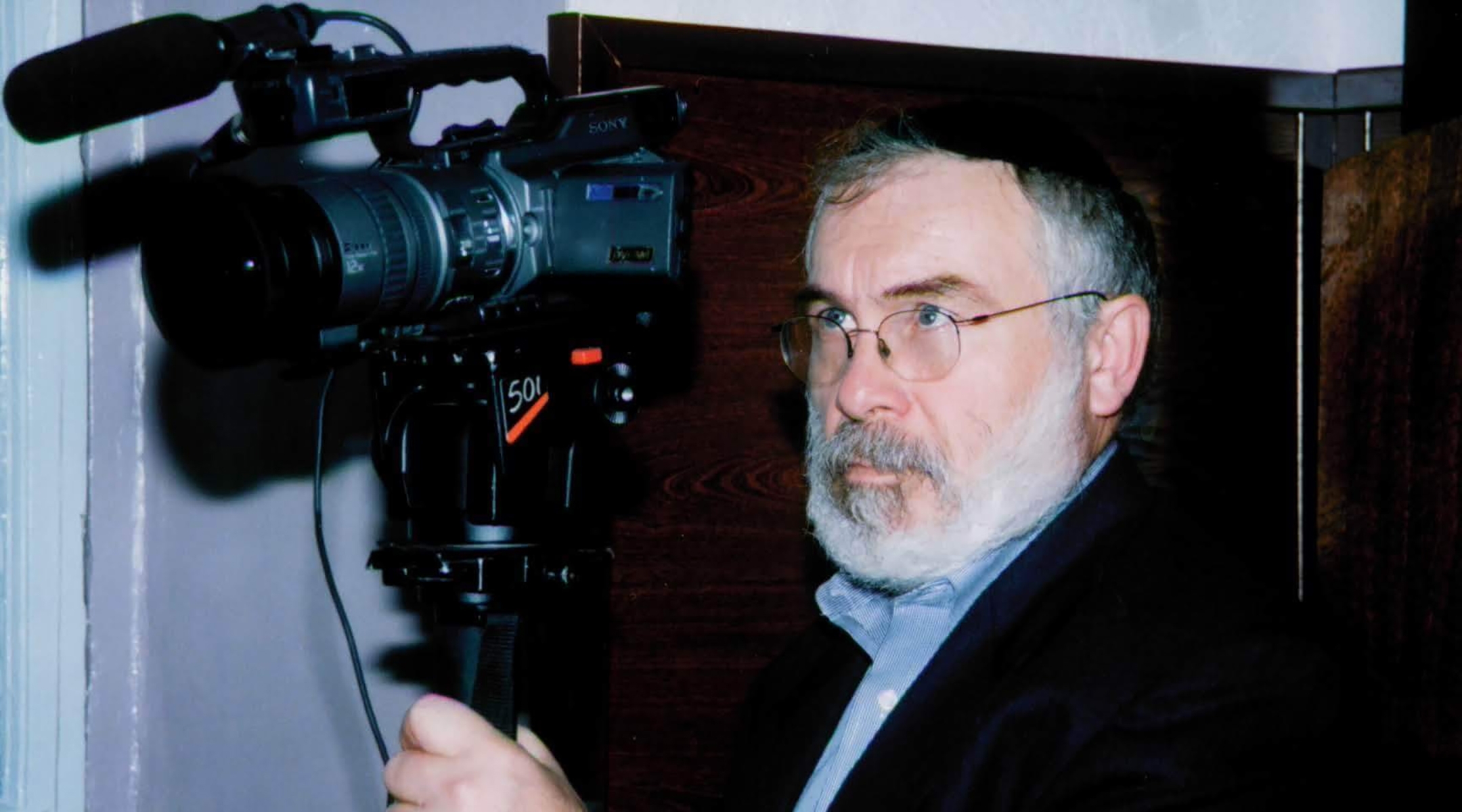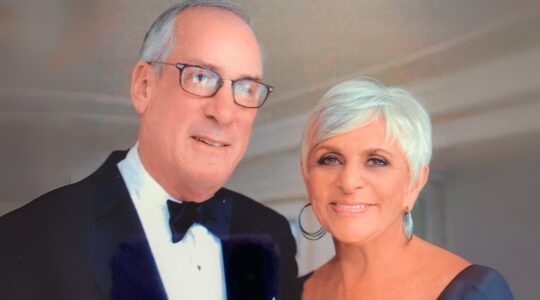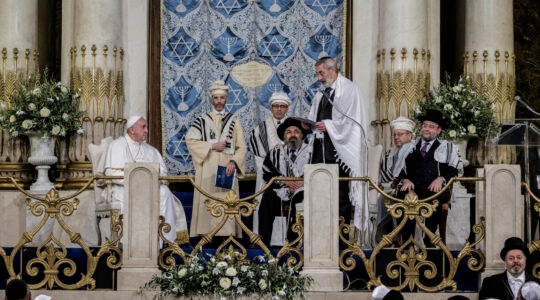This article is also available as a weekly newsletter, “Life Stories,” where we remember those who made an outsize impact in the Jewish world — or just left their community a better or more interesting place. Subscribe here to get “Life Stories” in your inbox every Tuesday.
(JTA) — Filmmaker Menachem Daum, a member of Brooklyn’s Gerer hasidic movement whose documentaries challenged preconceptions about haredi Jews and Polish gentiles, died Jan. 7. He was 77.
A gerontologist by training, Daum and his frequent collaborator, Oren Rudavsky, made the 1997 PBS documentary, “A Life Apart: Hasidism in America,” which introduced many Americans to his community from a rare insider’s perspective. In “Hiding and Seeking: Faith and Tolerance After the Holocaust” (2004), he traveled to Poland in part to dispel his religious sons’ mistrust of gentiles by finding the Polish family that helped save his parents during the Holocaust. And in “The Ruins of Lifta” (2016), he and Rudavsky documented the efforts of an Israeli-Arab group trying to prevent an empty Arab village from being demolished by Israeli developers.
Daum was born October 5, 1946 at the Landsburg Displaced Persons Camp in Germany, and lived in Brooklyn most of his life. Last year, Daum told the news site Shtetl that he made “A Life Apart” as a way to honor his father, a Holocaust survivor and devoted Hasid. And he made “Hiding and Seeking” to challenge his community’s discourse around gentiles. “As a Jewish filmmaker, I use film to challenge stereotypes,” he told the Jewish Standard in 2022. “If Jews thought that all Poles were incorrigible antisemites, I can show films about the Poles who protected my family, and Poles who now are going to great lengths to protect Jewish cemeteries.”
Author and filmmaker Eva Fogelman, whose advice Daum sought in making “Hiding and Seeking,” told JTA she appreciated his “courage to speak out against intolerance within a religious community that was healing itself from persecution and is not ready to embrace ‘the other.'”
A bat mitzvah at 91
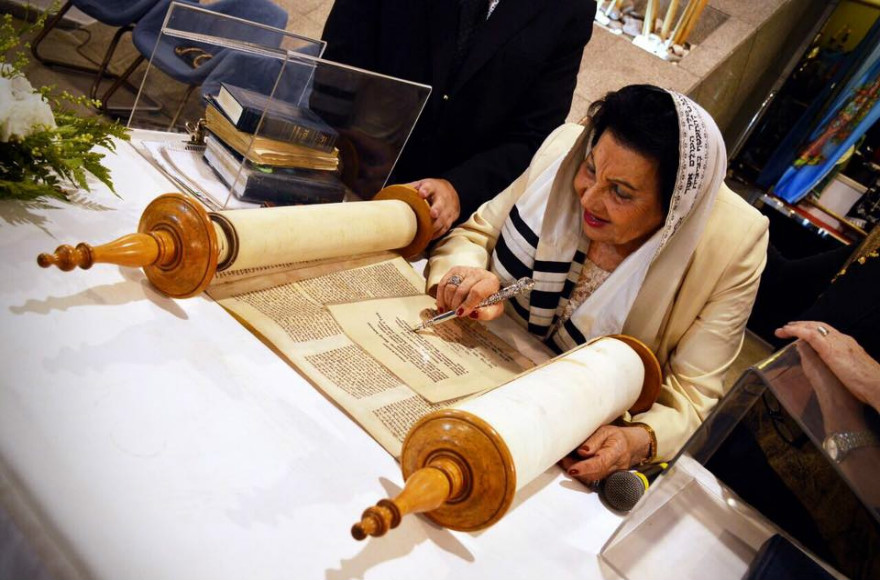
Holocaust survivor Eugenia Unger, then 91, celebrates her bat mitzvah in Buenos Aires in 2017. (Facebook screenshot)
In 2017, after decades in which she shared her experiences of surviving the Majdanek and Auschwitz concentration camps, Eugenia Unger made national news in Argentina by celebrating her bat mitzvah at age 91. She was called to the Torah at the Herzliya Jewish community center and synagogue in Buenos Aires, which also organized a birthday celebration in her honor. She told Argentine media that “the culmination of my whole life is my bat mitzvah.” One of the founding members of the Holocaust Museum of Buenos Aires in 2000, she wrote three books about her experiences. Unger died Dec. 19 in a private hospital in Buenos Aires. She was 97.
A tireless defender of public health
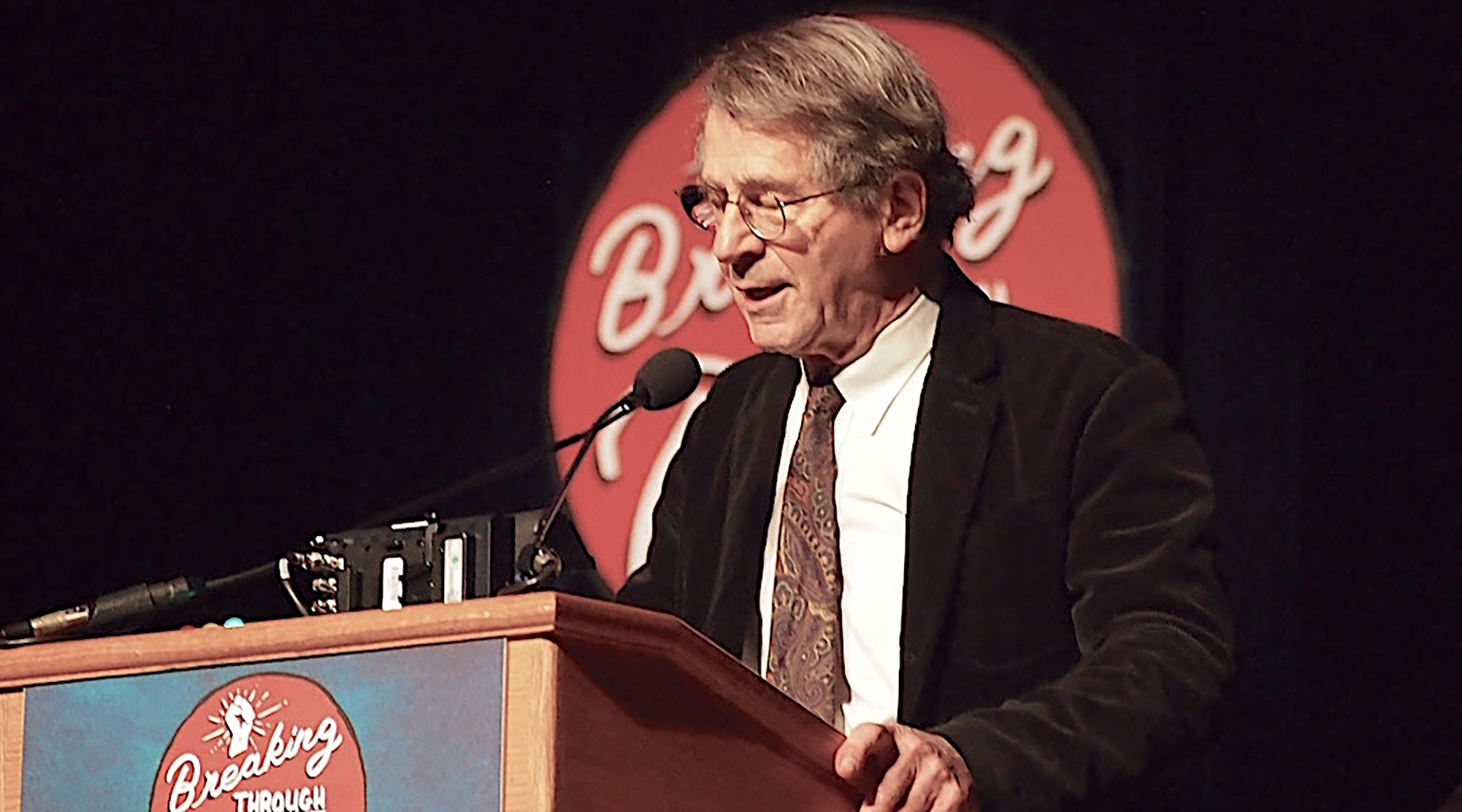
Sidney M. Wolfe (1937–2024), physician who challenged drug companies. (Wikimedia Commons)
In 1967, the Cleveland-born physician Sidney Wolfe traveled to the South to provide medical care during voter registration drives. There he met the consumer activist Ralph Nader, and the two would go on to found Public Citizen. As head of its affiliated Health Research Group, Wolfe demanded accountability from the pharmaceutical industry and government regulators, leading campaigns to drive dangerous or mislabeled prescription drugs and devices off the market. His book “Worst Pills, Best Pills: A Consumer’s Guide to Avoiding Drug-Induced Death or Illness” was a perennial bestseller. In 1992, Manhattan’s Central Synagogue presented him with its annual Shofar Award, given to those “whose accomplishment, mission, and goals in pursuit of social justice are informed by the highest principles of Judaism and the Jewish people.” Wolfe died Jan. 1 at his home in Washington. He was 86.
A Jewish publishing pioneer
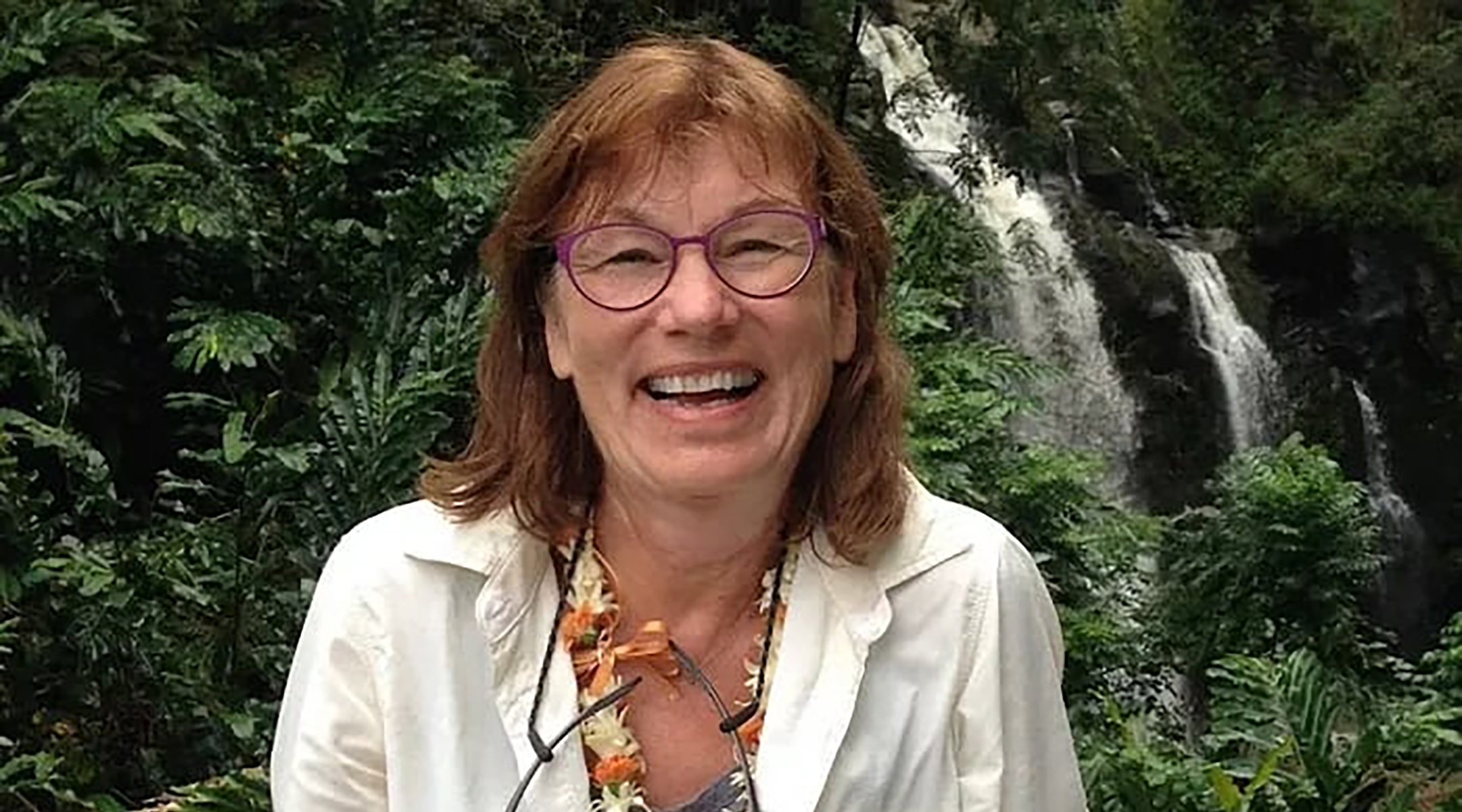
Carol Hupping Fisher of the Jewish Publication Society served as publishing director, managing editor and chief operating officer. (Courtesy Fisher family)
When Carol Hupping Fisher interviewed at the Jewish Publication Society in the late 1990s, it felt like a perfect fit. “I was pursuing my Jewish education as somebody getting ready to convert,” Fisher, who grew up Protestant, told the Jewish Exponent in 2016, “and I was in publishing, so it was a beautiful blend of my personal life getting to extend … into my professional life.” Fisher would go on to become publishing director, managing editor and chief operating officer for the Philadelphia-based JPS, shepherding over 100 books into print — including “Etz Hayim,” the Conservative movement Torah commentary — and overseeing a partnership between JPS and the University of Nebraska. Before joining JPS, she was the first female and youngest vice president of publishing at Rodale Press, a publisher of health and wellness magazines and books. Raised in Merrick, New York, she died Dec. 14 of glioblastoma at her home in Collingswood, New Jersey.
A “rabbi’s rabbi” and scholar of Yiddish
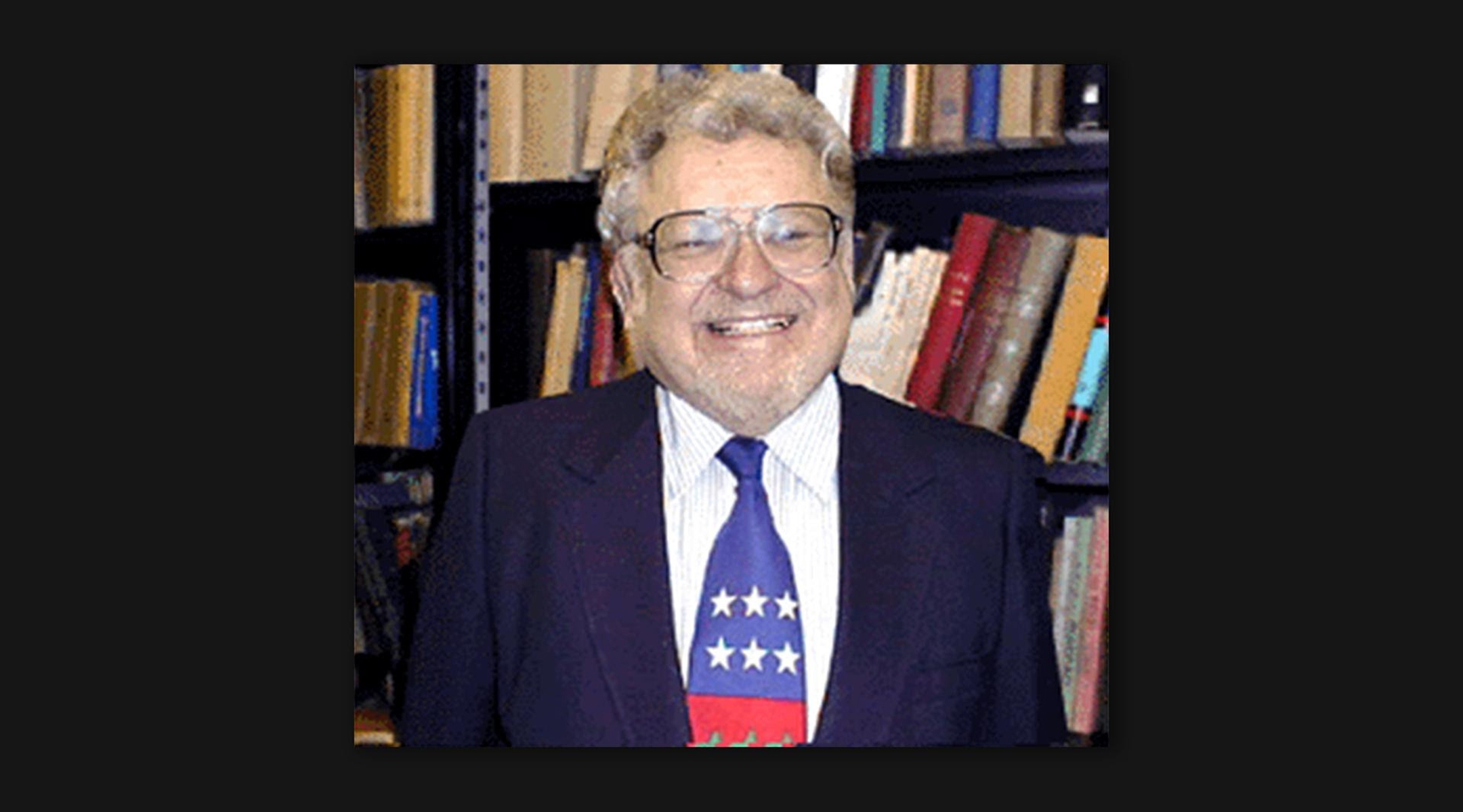
Rabbi Emanuel S. Goldsmith was a professor, pulpit rabbi and co-editor of “Dynamic Judaism: The Essential Writings of Mordecai M. Kaplan.” (Queens College)
As a scholar of Yiddish literature, Rabbi Emanuel S. Goldsmith taught Jewish Studies at Queens College and other universities, and was the author, in 1997, of “Modern Yiddish Culture,” described as the first history of the 20th-century Yiddishist movement. As a pulpit rabbi he led congregations in Scarsdale, New York; Hyde Park, Massachusetts, and Halifax, Nova Scotia. And as a committed Reconstructionist Jew, he became an expert in the work of his teacher and the movement’s founder, Mordecai Kaplan. “Manny was a rabbi’s rabbi,” Mel Scult, co-editor with Goldsmith of the book “Dynamic Judaism: The Essential Writings of Mordecai M. Kaplan,” wrote in a tribute. “Manny’s scholarship was vast, and he was particularly proud of the contacts and articles he published making Kaplan known not only to the Jewish community but also to many Christian colleagues.” Goldsmith died Jan. 5. He was 88.
A rabbi’s son who helmed The New York Times
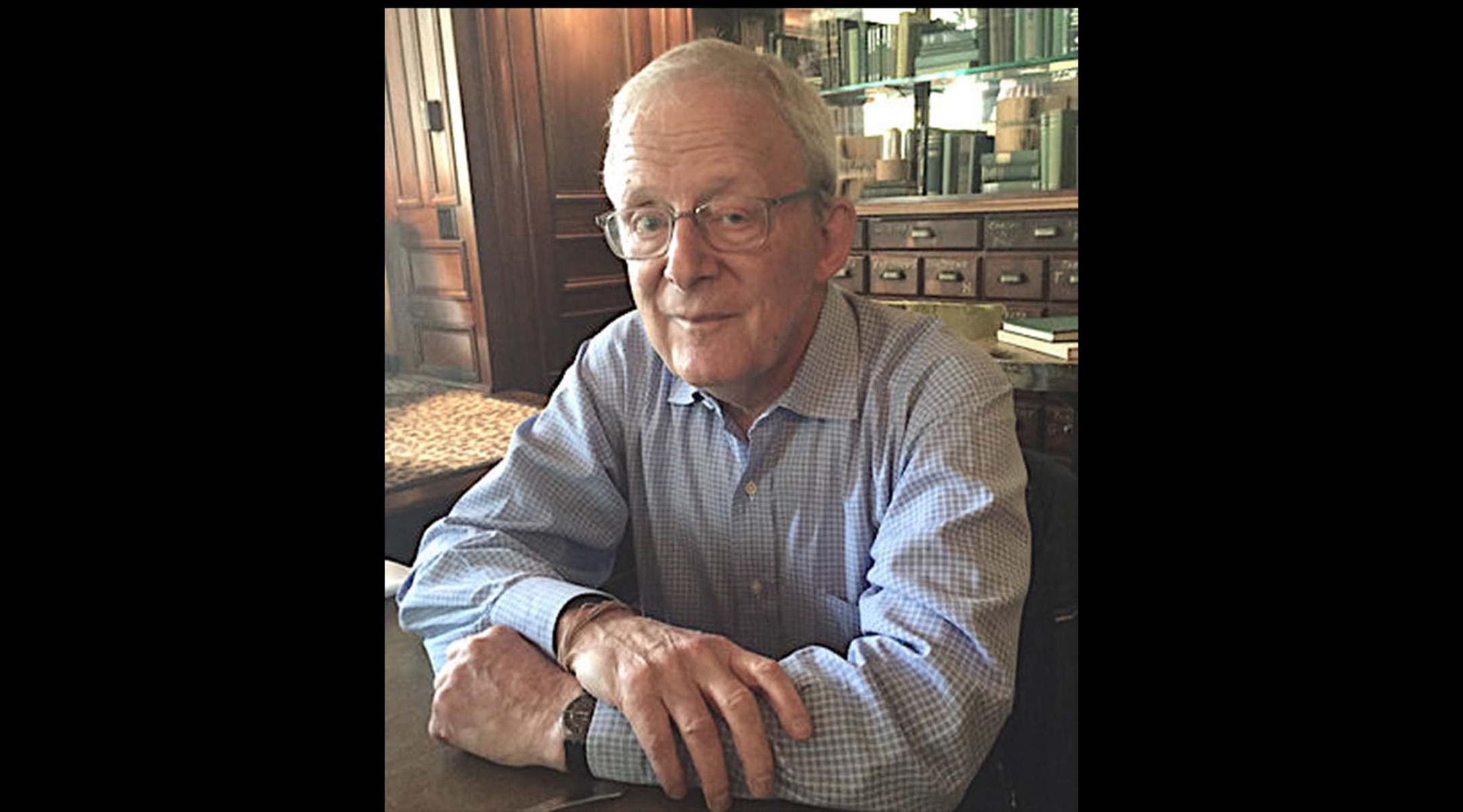
Joseph Lelyveld served as executive editor of The New York Times during a period of peak profits and expanding readership. (©Nita Lelyveld/Penguin Random House)
Joseph Lelyveld, a rabbi’s son who became a renowned foreign correspondent and who served as executive editor of The New York Times from 1994 to 2001 — a period of peak profits and expanding readership — died Friday at his home in Manhattan. He was 86. Lelyveld’s father, Arthur, was a leader of the Reform movement and a civil rights activist who helped influence President Harry S. Truman’s decision to recognize the State of Israel. In a 2005 memoir, Joseph recalled how his preoccupied parents shipped him off as a child to live with a Seventh-Day Adventist family and later his paternal grandparents in Brooklyn. As the son of a prominent Zionist, Lelyveld served as an intermediary with Jewish critics of the Times’ Israel coverage, but eventually lost his patience. “There has never been a Times correspondent who was considered honorable by the more extreme faction of pro-Israel readers,’’ he told a researcher in 2012.
Faces of Israel’s Fallen
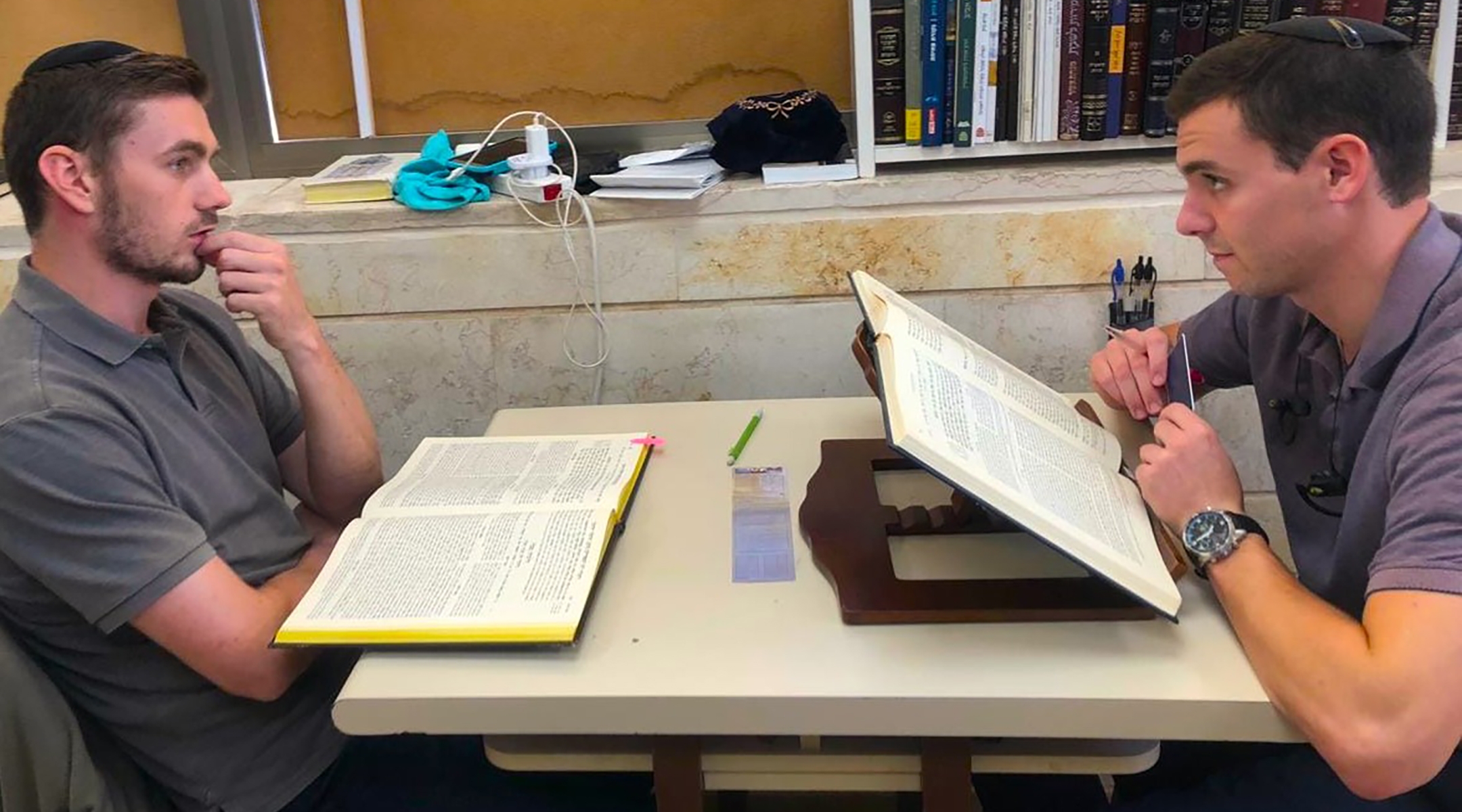
David Schwartz, left, and Yakir Hexter were photographed learning together in the beit midrash, or study hall, of Yeshivat Har Etzion in Alon Shvut, in a program for Israeli soldiers. (Via Facebook)
Two Israeli combat engineers who were chevrutas, or study partners, at Yeshivat Har Etzion in Alon Shvut were killed Monday in a rocket-propelled grenade attack in the Gaza city of Khan Younis, the IDF said. David Schwartz and Yakir Hexter, both 26, were part of a paratrooper force, and, as the Times of Israel explained, “tasked with some of the most dangerous work as part of the IDF’s ground offensive in the Gaza Strip, scanning Hamas’s tunnel networks and destroying them, along with other sites, with explosives.”
Schwartz was married to Meital Schwartz, whose father Joseph Gitler is the founder and chairman of Leket Israel, the country’s largest food non-profit. David’s sister Shira Meirman is currently an Israeli emissary at the Community Hebrew Academy of Toronto. Both soldiers, who studied together as part of an army program for religious troops, had family connections to Yeshivat Chovevei Torah, a Modern Orthodox seminary in Riverdale, New York: Schwartz, from Elazar, was a nephew by marriage to YCT alumnus Rabbi Marc Gitler of Denver, Colorado; Hexter, from Jerusalem, was the nephew of YCT board member Rabba Yaffa Epstein of New York’s Jewish Education Project. Schwartz and Hexter were among nine Israeli soldiers killed in combat on Jan. 8, including six troops killed in an explosion in central Gaza. Their deaths raised the toll in Israel’s offensive to 185.
JTA has documented Jewish history in real-time for over a century. Keep our journalism strong by joining us in supporting independent, award-winning reporting.
